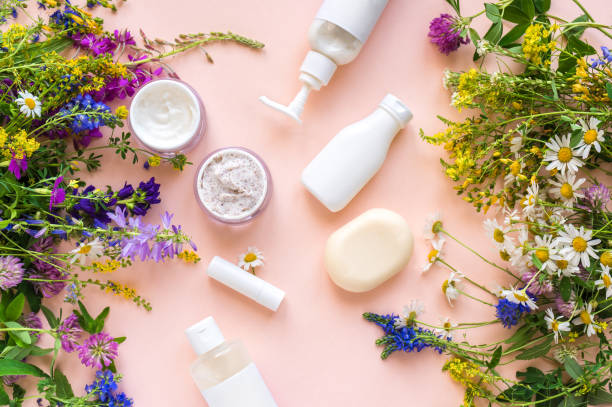Why is it important for you and those you love to understand the harm that toxic products pose?
Keep reading to find out.
WHAT ARE TOXINS?

Toxins are harmful substances that can cause damage to the body's cells, tissues, and organs. They are often produced by living organisms such as bacteria, fungi, and plants, but can also be synthetic chemicals and pollutants.
Toxins can be classified into several categories based on their origin and mode of action, such as:
- Biological toxins: Produced by living organisms, such as bacteria, fungi, and plants. Examples include botulinum toxin produced by the bacterium Clostridium botulinum, which causes botulism, and mycotoxins produced by fungi that can contaminate food.
- Chemical toxins: Synthetic chemicals or pollutants that can cause harm to the body. Examples include heavy metals like lead and mercury, pesticides, and industrial chemicals like polychlorinated biphenyls (PCBs).
- Environmental toxins: These include pollutants in the air, water, and soil that can have harmful effects on human health. Examples include smog, industrial waste, and toxic metals like cadmium and arsenic.
Toxins can cause a wide range of health problems, from mild symptoms like headaches and nausea to more serious conditions like organ damage, cancer, and neurological disorders. It's important to minimize exposure to toxins and seek medical attention if you suspect that you have been exposed to a harmful substance.
WHAT CHEMICAL TOXINS DO TO THE BODY

Chemical toxins can have a variety of effects on the body, depending on their chemical structure, concentration, and the specific biological pathways they interact with. However, in general, chemical toxins can disrupt normal cellular functions by interfering with critical biochemical reactions, damaging DNA and other cellular structures, and inducing oxidative stress.
Some chemical toxins can bind to proteins and enzymes, altering their function and disrupting metabolic pathways. For example, lead can bind to and inhibit the activity of enzymes involved in heme synthesis, leading to anemia and other symptoms. Similarly, carbon monoxide can bind to hemoglobin, preventing it from carrying oxygen, which can cause hypoxia and organ damage.
Other toxins can interfere with DNA replication and repair, leading to mutations and increased risk of cancer. For example, benzene and other aromatic hydrocarbons can be metabolized by the body to form highly reactive intermediates that can damage DNA and other cellular structures.
In addition to these specific mechanisms, many chemical toxins can also induce oxidative stress, which occurs when there is an imbalance between the production of reactive oxygen species (ROS) and the body's antioxidant defenses. This can lead to damage to lipids, proteins, and DNA, and contribute to the development of chronic diseases such as cancer, cardiovascular disease, and neurodegenerative disorders.
Chemical toxins can have complex and wide-ranging effects on the body, depending on their chemical properties and the specific biological pathways they affect.
It is important that we choose non-toxic products as much as possible to avoid the detrimental affects that chemicals can produce.
WHY CHOOSE NON-TOXIC PRODUCTS

In today's world, where we are constantly exposed to pollutants and toxins, it has become increasingly important to use non-toxic products. Non-toxic products are those that do not contain harmful chemicals or substances that can cause harm to our health or the environment. Let's explore the benefits of using non-toxic products.
One of the most significant benefits of using non-toxic products is the positive impact they can have on your health. Many conventional cleaning and personal care products contain harmful chemicals that can be absorbed through the skin or inhaled, leading to various health problems. By switching to non-toxic products, you can reduce your exposure to these harmful chemicals and protect your health.
Environmentally Friendly
Non-toxic products are also better for the environment. Many conventional products contain chemicals that can harm the environment, such as phosphates, which can lead to the growth of harmful algae in waterways. Non-toxic products are made from natural, biodegradable ingredients that break down easily and do not harm the environment.
Safe for Children and PetsChildren and pets are more vulnerable to the harmful effects of chemicals, as their bodies are still developing. By using non-toxic products, you can ensure that your home is a safe and healthy environment for your children and pets.
Less IrritatingMany conventional products can be irritating to the skin and eyes, causing redness, itching, and other discomfort. Non-toxic products are typically made from natural ingredients that are gentle on the skin and less likely to cause irritation.
Cost-EffectiveWhile non-toxic products may be slightly more expensive than conventional products, they are often more cost-effective in the long run. This is because they are often concentrated, meaning that a small amount goes a long way. Additionally, non-toxic products can help prevent health problems that could result in expensive medical bills.
NATURAL NON-TOXIC CLEANING PRODUCTS

There are many non-toxic household products that you can use for cleaning, personal care, and other purposes.
NATURAL CLEANING PRODUCTS:
- Vinegar: Vinegar is an effective and safe alternative to harsh chemical cleaners. It can be used to clean surfaces, remove stains, and deodorize.
- Baking soda: Baking soda is another versatile non-toxic household product. It can be used to clean and deodorize surfaces, remove stains, and even as a natural toothpaste.
- Castile soap: Castile soap is a gentle and eco-friendly soap that can be used for cleaning everything from dishes to your body. It's made from vegetable oil and doesn't contain any harsh chemicals or synthetic fragrances.
- Essential oils: Essential oils can be used for a variety of purposes around the house, from cleaning to aromatherapy. They can be added to cleaning solutions, used to freshen the air, or even added to DIY beauty products.
- Beeswax: Beeswax can be used to make your own non-toxic furniture polish and can be used to protect wood and other surfaces.
- Lemon juice: Lemon juice is a natural cleaner and deodorizer. It can be used to clean surfaces, remove stains, and freshen the air.
These non-toxic household products are safer for both you and the environment and are just as effective as their chemical counterparts.
WRAPPING IT ALL UP
In conclusion, there are many benefits to using non-toxic products. They are better for your health, the environment, and are safer for children and pets. They are also less irritating to the skin and eyes and can be cost-effective in the long run. So, next time you are shopping for cleaning or personal care products, consider switching to non-toxic alternatives for a healthier and more environmentally friendly options.

